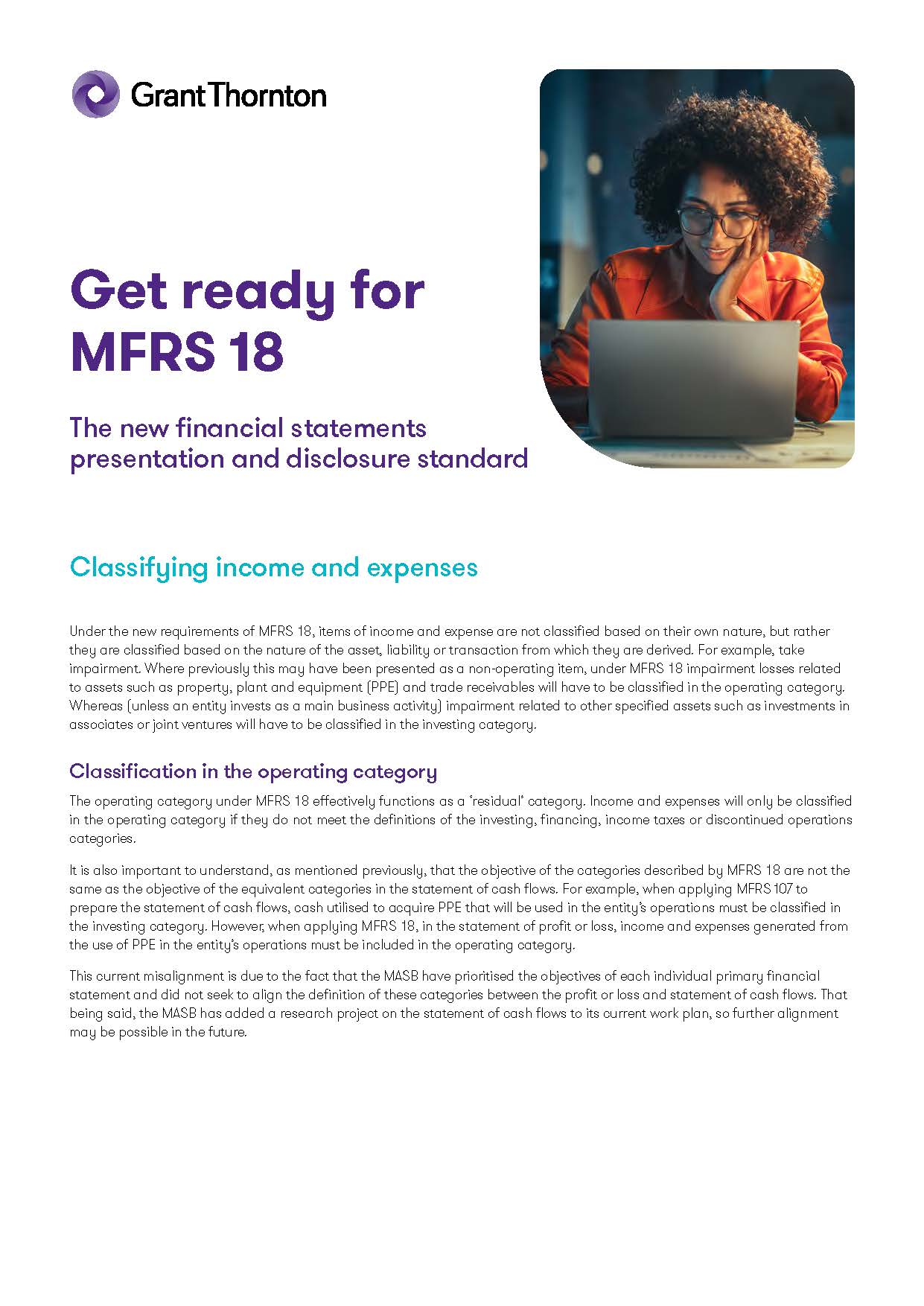-
Audit approach
Designing a tailored audit programme customised for your business, we will combine the…
-
Audit methodology
We have adopted Grant Thornton International's Horizon audit approach and Voyager software, a…
-
MFRS
At Grant Thornton, our MFRS advisers can help you navigate the complexity of financial reporting.
-
Our local experts
Our local experts
-
Tax advisory & compliance
Our teams can prepare corporate tax files and ruling requests, support you with deferrals, accounting…
-
Corporate & individual tax
Our teams can prepare corporate tax files and ruling requests, support you with deferrals, accounting…
-
International tax & Global mobility services
Our teams have in-depth knowledge of the relationship between domestic and international tax laws.
-
Indirect tax
Our indirect tax specialists help clients in effective planning; assist to bring clarity to the legislation;…
-
Tax audit & investigation
Tax audit and investigation
-
Transfer pricing
Transfer pricing
-
M&A, Restructuring & Forensics
Forensic
-
Corporate finance
Whether you are raising capital, disposing of a business or seeking a wider market for your company's…
-
Business risk services
We can help you identify, understand and manage potential risks to safeguard your business and…
-
Recovery and reorganisation
We provide a wide range of services to recovery and reorganisation professionals, companies and their…
-
Our values
We have six CLEARR values that underpin our culture and are embedded in everything we do.
-
Learning & development
At Grant Thornton we believe learning and development opportunities help to unlock your…
-
In the community
Many Grant Thornton member firms provide a range of inspirational and generous services to the…
-
Internship
Internship
-
Internship
Internship

Under the new requirements of MFRS 18, items of income and expense are not classified based on their own nature, but rather they are classified based on the nature of the asset, liability or transaction from which they are derived. For example, take impairment. Where previously this may have been presented as a non-operating item, under MFRS 18 impairment losses related to assets such as property, plant and equipment (PPE) and trade receivables will have to be classified in the operating category. Whereas (unless an entity invests as a main business activity) impairment related to other specified assets such as investments in associates or joint ventures will have to be classified in the investing category.
This publication series sets out a high-level overview of MFRS 18’s new requirements, along with practical insights into the application challenges. In this series we will be looking at the classification of income and expenses.

How we can help
We hope you find the information in this article helpful in giving you some insight into aspects of MFRS 18. If you would like to discuss any of the points raised, please speak to your usual Grant Thornton contact.
